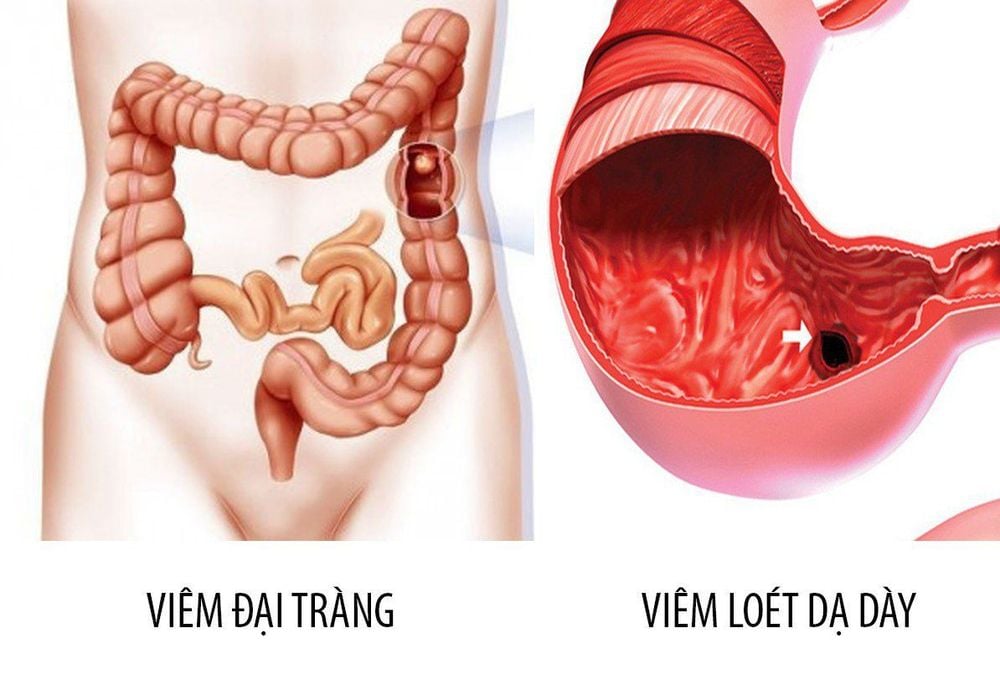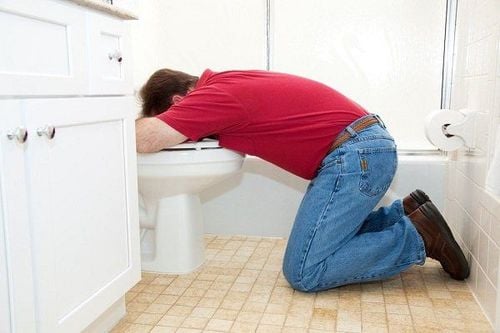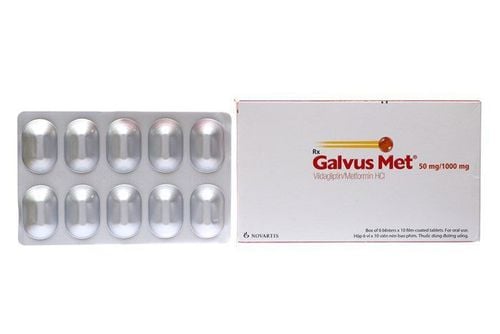Article written by MD, MSc. Dr. Mai Viễn Phương - Department of General Medicine & Internal Medicine - Vinmec Central Park International General Hospital
Nighttime diarrhea can cause anxiety and discomfort. Diarrhea is a condition when you pass loose, watery stools. Nighttime diarrhea occurs at night and often disrupts your sleep. There are many causes that can lead to diarrhea at night.
You may only have mild diarrhea, which will resolve within one or two days. Or, you may experience chronic nighttime diarrhea. Chronic diarrhea lasts for more than four weeks and may indicate a more serious health condition. You should consult a doctor if the diarrhea is severe or chronic.
1. Symptoms
The symptoms of nighttime diarrhea occur at night and include:
- Loose, watery, or thin stools
- Abdominal pain
- A feeling of urgency to have a bowel movement
- Nausea
- Bloating
- Fever
You may experience mild diarrhea with some or all of these symptoms, and you might be able to manage the condition for one or two days. You could wake up with these symptoms or have difficulty sleeping due to mild diarrhea, but this typically passes over time.
Severe diarrhea may include these symptoms as well as others, such as blood in your stool and intense pain.
Chronic diarrhea is when you have diarrhea multiple times a day for a month or longer. Typically, chronic diarrhea can occur at night and is a sign of a more serious underlying condition.
Nighttime diarrhea can be disruptive because it interferes with your sleep. This can be particularly troublesome with chronic diarrhea.

2. Causes
Diarrhea, ranging from mild to severe, can be caused by:
- Infections, including viral or bacterial diseases
- Medications
- Food
- Allergies
You might experience nighttime diarrhea due to one of these causes, but it is unlikely to last for an extended period.
Chronic nighttime diarrhea may indicate a more serious condition. This condition could even assist doctors in making a diagnosis. Some gastrointestinal conditions, like irritable bowel syndrome and other functional bowel disorders, generally do not cause nighttime diarrhea.
Nighttime diarrhea is often due to secretory diarrhea. Secretory diarrhea happens when your intestines cannot absorb or secrete electrolytes and fluids properly. You may experience secretory diarrhea due to an underlying health condition or external factors such as alcohol use, surgery, or medications.
Here are some health conditions that may cause chronic nighttime diarrhea:
Inflammatory Bowel Disease (IBD)
Inflammatory bowel disease can be caused by various conditions, including ulcerative colitis and Crohn's disease. It occurs when you have chronic inflammation in your digestive tract. Ulcerative colitis occurs in your colon, while Crohn's disease can affect any part of your digestive tract, from your mouth to your anus. Both are autoimmune diseases that cause inflammation of the digestive tract.
You may notice blood or mucus in your stool, along with other diarrhea symptoms. Other symptoms of these conditions include pain during bowel movements, fatigue, weight loss, anemia, and chronic abdominal pain. These chronic conditions can sometimes be severe but may go into remission with proper treatment.
The exact cause of inflammatory bowel disease is not known, but you may be more likely to develop it if you have a family history of the disease, smoke, or take nonsteroidal anti-inflammatory drugs (NSAIDs).
Microscopic Colitis
Microscopic colitis can cause nighttime diarrhea even when you are fasting. This condition involves inflammation in your colon at a microscopic level. You are more likely to develop this condition as you age. It can occur if you take certain medications, such as NSAIDs, for a long time. It can also develop for an unknown reason.
Diabetes
Diabetes can be a cause of nighttime diarrhea. You may be more prone to nighttime diarrhea if your blood sugar levels are poorly controlled and if you rely on insulin. You may also experience nighttime diarrhea more frequently if you have diabetes along with autonomic and peripheral neuropathy. Nighttime diarrhea may occur frequently or only occasionally.

3. Treatment for Nighttime Diarrhea
Your nighttime diarrhea may occur on its own or may be a sign of an underlying chronic condition. Treatment methods vary based on the cause of the nighttime diarrhea. You should see a doctor before treating prolonged diarrhea to receive a diagnosis and a specific treatment plan. The doctor may prescribe or recommend various medications to treat chronic diarrhea, including antidiarrheal medications or antibiotics.
Here are some ways to treat mild diarrhea:
- Stay hydrated by drinking diluted, nutritionally valuable liquids such as fruit juices, sports drinks, and broth.
- Eat bland foods low in fiber and avoid fatty foods.
- Try over-the-counter antidiarrheal medication.
- Reduce caffeine intake.
- Avoid alcohol.
Prevention Tips:
- Mild diarrhea is common and may occur once or twice a year.
You can prevent nighttime diarrhea from a chronic health condition by managing the underlying cause.
Inflammatory Bowel Disease (IBD)
- Avoid triggers that may worsen the condition. While this condition cannot be cured, you want to avoid diarrhea and other unwanted symptoms. Do not smoke and ensure adequate sleep. Your doctor may also recommend supplements in addition to adjusting prescription therapies to treat your IBD.
Microscopic Colitis
- Modify your diet to one that is low in fiber, low in fat, and free of dairy. Consider gluten-free foods. Avoid medications that may exacerbate the condition.
Diabetes
- Effectively manage diabetes with the support of your doctor to avoid nighttime diarrhea. Your doctor may suggest various treatments and preventive measures to alleviate nighttime diarrhea.
Complications and Emergency Symptoms
Nighttime diarrhea may be a sign of a serious condition that requires medical attention. See a doctor if:
You suspect dehydration. You need to maintain a certain amount of fluids and salt in your body, and prolonged or severe diarrhea can cause complications. You should consult a doctor if you are dehydrated. Vulnerable groups include young children, the elderly, and those with other medical conditions.
- You have a prolonged or high fever.
- You notice blood or mucus in your stool.
- Your diarrhea lasts for several weeks.
- You recognize symptoms of a more serious condition.
Conclusion
Nighttime diarrhea is a condition that can wake you up from a good night's sleep. This condition can progress to mild diarrhea and resolve in one or two days. Or, you may experience frequent nighttime diarrhea. It may be a sign of something more serious, and you should consult a doctor.

Vinmec International General Hospital is one of the hospitals that not only ensures professional quality with a team of doctors and modern technology but also excels in comprehensive, professional medical consultation and treatment services, as well as a civilized, safe, and sterile treatment environment.
The Endoscopy - Gastroenterology Department is one of the specialized departments at Vinmec International General Hospital. To be examined, consulted, and treated for digestive diseases in a timely manner, you can contact the Vinmec Health System nationwide or make an appointment through the website for service.
To arrange an appointment, please call HOTLINE or make your reservation directly HERE. You may also download the MyVinmec app to schedule appointments faster and manage your reservations more conveniently.
ReferenceEl-Awady M. (n.d.). Clinical evaluation of chronic diarrhea. smh.mans.edu.eg/files/pdf/gastro/chronic_diarrhea.pdf Juckett G, et al. (2011). Evaluation of chronic diarrhea. aafp.org/afp/2011/1115/p1119.html
Lamont JT. (2017). Patient education: Chronic diarrhea in adults (Beyond the Basics). uptodate.com/contents/chronic-diarrhea-in-adults-beyond-the-basics Mayo Clinic Staff. (2016). Diarrhea. mayoclinic.org/diseases-conditions/diarrhea/symptoms-causes/syc-20352241 Mayo Clinic Staff. (2017). Inflammatory bowel disease (IBD). mayoclinic.org/diseases-conditions/inflammatory-bowel-disease/symptoms-causes/syc-20353315 Mayo Clinic Staff. (2017). Microscopic colitis. mayoclinic.org/diseases-conditions/microscopic-colitis/symptoms-causes/syc-20351478














